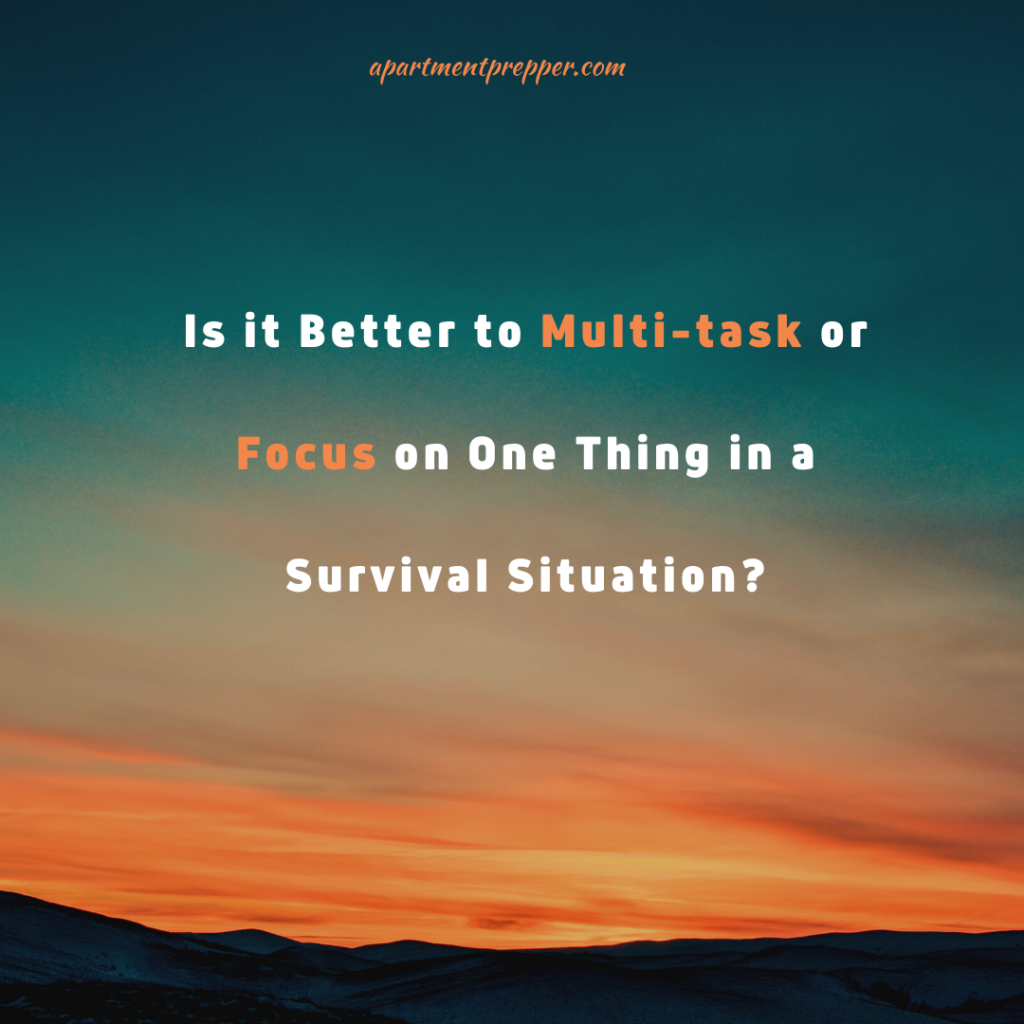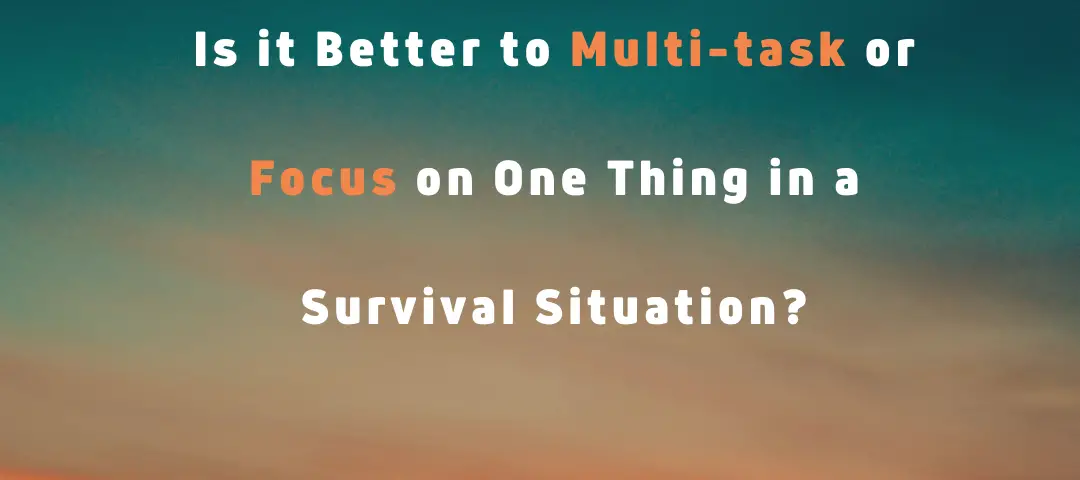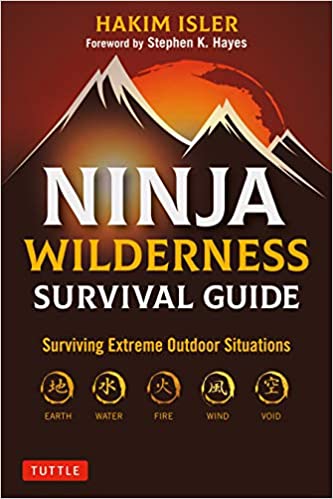Written by Bernie Carr
In today’s ultra busy world, people are always multi-tasking: driving and texting, working on a project and watching a video at the same time, responding to emails while attending a meeting. Some employers even encourage workers to multi-task, believing that they are more productive. We often multi-task in our daily life. But is multi-tasking good when you are facing a survival situation?
There has been a lot of research showing that that multi-tasking may have some downsides.
Studies show that when our brain is constantly switching gears to bounce back and forth between tasks – especially when those tasks are complex and require our active attention – we become less efficient and more likely to make a mistake.
This might not be as apparent or impactful when we’re doing tasks that are simple and routine, like listening to music while walking, or folding laundry while watching TV. But when the stakes are higher and the tasks are more complex, trying to multi-task can negatively impact our lives – or even be dangerous.
Source: The Cleveland Clinic
How to focus
Sometimes our own brains may work against us in a crisis. We need to be aware of ways to train our mental faculties to deal with emergencies. Below is an informative section on focusing the mind when your life depends on making good choices. It is from a new book, Ninja Wilderness Survival Guide written by Hakim Isler. Hakim Isler is a martial arts expert, decorated combat veteran and primitive survival expert with training from the U.S. Army Survival, Evacuation, Resistance and Escape (SERE) Program, so he has plenty of experience being in survival mode. We have permission from Tuttle Publishing to reprint it here:
Focus
After truthfully assessing your situation and determining what you have to do, you take action and assert direct control over the environment with the intention of of improving your situation. In this phase, you begin acting out your informed decision to building a shelter, collecting firewood, applying first aid, etc.
One of my Ninjutsu training buddies and survival instructors had a saying, “Whatever you’re doing, that’s what you’re doing.” I would often easily get distracted when performing a task. I would start building a shelter and while retrieving firewood for my shelter, I would somehow end up creating bundles of firewood. In a situation during class, once I returned with the material to start building my shelter, I found most people were halfway done. I thought, well I will have more firewood than those guys, but I was wrong. Not only did they complete their shelter before me, but they were also able to collect more wood than I was. I had this happen to me more than once before my friend enlightened me with his wisdom. “Whatever you’re doing, that’s what you’re doing.” It means to focus.
Focusing on one task at a time conserves energy and also make you more efficient. Even though there have been several studies done on the notion of multi-tasking, many people still believe that this is not only possible but it is an effective and efficient way to work. One the contrary, the studies show that the official term for Multi-tasking is actually called Task-switching. Task Switching is the rapid switching between one task to another without completion of either. Since tasks often require different actions and cognitive processes to fulfill, different parts of the mind are activated. As the mind determines what needs to be done, and how best to accomplish it, there is time lost. Often because we are living the experience, we do not register the lag or loss of time. It has been reported that it can take up to 5 minutes to get back to the level of productivity and functionality you were at when switching back to a task after an interruption or task switch. In a survival situation where time is paramount, this is a major issue. Studies have also shown that attempting to multitask can increase cortisol levels causing additional emotional and mental stress and strain. This is not good in a survival setting and will only serve to add to the depletion of your neurological resources. These resources serve to support the concept of my friend’s statements. It is important to focus on a set task to completion. An acronym I once heard that puts this well is F. O. C. U. S.
F – Follow
O – One
C – Course
U – Until
S – Success
I am not sure who created this acronym, but it is brilliant. I think anyone in a survival situation can benefit from its use. If you are collecting wood, you are collecting wood; if you are building a shelter, then build a shelter. With all that said, it is important to acknowledge that nothing in survival is perfect. There are times that switching tasks may be required, or there will be times when you will have to pay attention to more than one thing at once, but you have to understand the cost of doing this.
SOURCE: Ninja Wilderness Survival Guide written by Hakim Isler.
In conclusion
Regarding the original question, “Is is better to multi-task or focus on one thing in a survival situation?” the answer would have to be: “It depends on the situation.” There is some evidence that multi-tasking might make you less effective and more likely to make mistakes. Focus on one task at a time, give it your full attention then shift to the next thing when you’re done. However, if a situation arises where you will have to multi-task, you’ll need to recognize that it can take a toll on your mind.
We are an affiliate of Amazon.com, which means we received a small commission if you click through one of our Amazon links when you shop, at totally no cost to you. This helps keep the lights on at the blog. Thanks!



